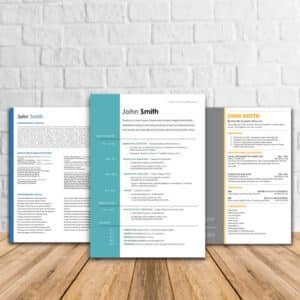When you’re genuinely unwell, taking time off work is necessary, not just for your own recovery, but to prevent the spread of illness to others. However, many professionals still hesitate when it’s time to notify their manager. Knowing how to call in sick, what to say, and what reasons are appropriate can make the process smoother and more professional.
This guide will walk you through how to ring in sick, with examples and best practices that align with workplace expectations. We’ll also explore good reasons to ring in sick and when it’s appropriate to notify your employer.
Why It’s Important to Handle Sick Leave Professionally
Taking sick leave isn’t about making excuses, it’s about prioritising health and productivity. Whether you’re dealing with physical illness, mental health concerns, or other personal issues, being clear, respectful, and honest when making a sick call in protects your professional reputation and builds trust with your employer.
Good Reasons to Ring in Sick
While every workplace is different, here are some widely accepted good reasons to ring in sick:
- Flu or fever: Contagious illnesses that impact performance.
- Stomach-related issues: Vomiting, diarrhoea, or food poisoning.
- Mental health days: Anxiety, burnout, or emotional distress.
- Medical appointments or procedures: Pre-scheduled or emergency care.
- Migraine or severe headaches: Particularly if you work on screens.
- Back pain or mobility issues: That limit your physical ability to work.
Each of these reasons is valid, especially when they hinder your ability to perform your role effectively or compromise the well-being of others in the workplace.
How to Call in Sick (Step-by-Step)
When you’re ready to notify your employer, timing and tone matter. Here’s how to call in sick the right way:
✅ Step 1: Notify Early
If possible, call or message your supervisor before the start of your workday. Early notice helps with coverage and workload redistribution.
✅ Step 2: Keep It Brief but Clear
You don’t need to overshare medical details. Focus on clarity, professionalism, and anticipated recovery time.
✅ Step 3: Offer a Timeline
Let your employer know when you expect to return or when you’ll provide an update.
✅ Step 4: Follow the Company Protocol
Whether your workplace prefers a phone call, text, or HR portal update, follow the proper channel.
How to Phone in Sick: Sample Scripts
Not sure what to say? Here are examples of how to phone in sick professionally:
Example 1: Flu or Cold
“Hi [Manager’s Name], I’m feeling unwell this morning with flu-like symptoms and won’t be able to come in. I’ll rest today and keep you updated if I need additional time off. Please let me know if anything is needed from my end.”
Example 2: Mental Health Day
“Hi [Manager’s Name], I’m taking a sick day today due to some health concerns that require rest and recovery. I’ll be checking in tomorrow and will update you on my return.”
Example 3: Last-Minute Emergency
“Hi [Manager’s Name], I’ve had a sudden health issue this morning and won’t be able to work today. I’ll check in later to confirm if I’ll be well enough to return tomorrow.”
How to Ring in Sick by Message (If Phone Calls Aren’t Preferred)
In some workplaces, calling might be replaced by email or messaging platforms like Slack or Teams. Here’s a message-friendly version of a sick call in:
“Good morning [Manager’s Name], I’m not feeling well today and will be taking a sick day to recover. Please let me know if you need any information from me in the meantime. I’ll keep you updated as needed.”

When Not to Call in Sick
While we all need rest sometimes, avoid using sick leave as an excuse for:
- Job interviews (consider taking annual leave instead)
- Vacations or long weekends
- Lack of motivation or unfinished work
Dishonesty can damage your professional credibility, always be truthful.
Final Thoughts
Knowing how to ring in sick the right way helps maintain trust and professionalism, even during unexpected absences. Whether you’re dealing with a minor cold or a serious condition, your employer deserves timely and respectful communication.
At Leveraged CV, we support professionals at every stage of their career, from managing difficult conversations at work to preparing job-winning applications. Our CV, cover letter, and LinkedIn services are built to reflect your best self, especially during transitions or career breaks.
Why Choose Leveraged CV?
We are one of the UK’s top CV writing companies, offering:
✅ 87% Interview Success Rate
✅ Expert Writers, No AI or Templates
✅ ATS-Optimised Documents
✅ Professional Resumes, Cover Letters & LinkedIn Profiles
✅ Local Service Across:
Birmingham, Brighton, Cambridge, Leeds, Liverpool, London, Oxford, Plymouth, York, and Manchester
Ready to make your next career move, professionally and confidently?
Let us help you put your best foot forward with a custom-written CV or resume.
📩 Contact Leveraged CV today and take control of your professional narrative.


